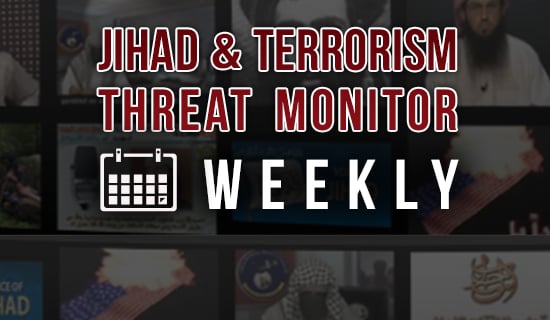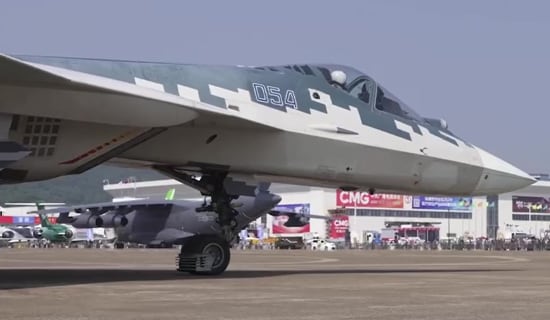In the continuing fallout after Russia's withdrawal from Kherson, pro-government opinion leaders such as Irena Alksnis, a commentator for the official RIA news agency are reframing the conflict from a snap special operation, to a protracted decade-long struggle between Russia and the West. Yes, there have been disappointments such as Russia's inability to conclude the war quickly, but the West has also failed to crush the Russian economy and is showing increasing signs of disarray and fatigue. Given this revised appraisal of the situation, Russia's citizens would be advised not to succumb to an emotional rollercoaster between elation and despair and brace themselves for the long haul.
Alksnis' op-ed. follows below:[1]

Irena Alksnis (Source: Ukraina.ru)
A couple of weeks ago, appearing before the Valdai [Discussion Club], President Putin delivered a message that was quite obvious, but unperceived by many: the current events and processes will go on for some time. The president outlined a decade-long term.
These words of his are extremely helpful to anyone following the world news and trying to form an independent opinion of unfolding events. We don't have the complete information, because we derive it from open sources. All the rest that is hidden from us, we assume and fill in the blanks to the best of our imagination, as well as with a propensity to pessimism or optimism.
However, upon analyzing current news and constantly bearing in mind that right now we are undergoing only a tiny part of a grand, years-long global process, it helps to establish a much clearer and soberer picture of current events that even otherwise hurl us on an almost daily basis from euphoria to despair and back). So, let’s take a look at what is happening from this point of view.
So, on February 24th, the transformation of the world system, which has been long underway (and has been in active phase since 2014) entered a new stage of open confrontation between Russia and the West, a confrontation, including military one, because its hybrid nature is nothing more than a fig leaf. Ukraine voluntarily provided its territory for hostilities and its population for NATO proxy forces.
Incidentally, this answers the question of how long the conflict in Ukraine will last: [it will last] until the end of the global confrontation. The hostilities will bulldoze Ukraine until the new global geopolitical configuration is achieved, namely, it constitutes the roughly ten years mentioned by Putin. One could sympathize with the southwestern neighbors of Russia, but they chose their own fate, pursuing it at length, stubbornly, and enthusiastically.
The past eight and a half months demonstrated that a scenario of a quick and as painless as possible solution to the Ukrainian issue, alas, didn’t work out. Well, the West has its own cause for disappointment. It didn’t succeed in destroying the Russian economy at a rapid pace with further governmental and political collapse. Such a scenario would’ve solved the US’s issues with its allies at once. But there is worse news than that, as it turned out that the West itself had become noticeably weaker and more vulnerable.
The socio-economic systems of countries situated on both sides of the Atlantic Ocean experienced a perceptible blow to themselves. Furthermore, the competent authorities no longer conceal the fact that this is just the beginning and the situation will get substantially worse. This, in turn, undermines both the internal political stability of these states and pan-Western solidarity as well. For the major part of the year, the collective West acted as an unequivocally consolidated, fiercely anti-Russian front, and now, it’s once again in disarray. And it is against such a backdrop that we are observing the last weeks’ events (part of which, by the way, was the withdrawal of Russian troops from the right bank of the Dnipro river). In the West, there is a growing and increasingly vocal push to enter talks with Russia, both influential media and prominent figures, like the Pope are involved in this process. The global mainstream media is already openly writing about signs of the collapse of the anti-Russian coalition, due to the economic problems faced by the member-states. Some countries, such as Italy, even announced the suspension of military supplies to Ukraine. The US refused to provide Kyiv with "Gray Eagle" UAVs, while Joe Biden reiterated that the US wouldn’t get directly involved in the Ukrainian conflict.
One can automatically raise objections to this: You never know what they are saying, the West always deceives everyone, it thinks one thing, but says another, and does a completely different thing, it simply cannot be trusted. And this is absolutely fair. Except that no one is talking about trust.
Commenting on recent events, the US president stated that Russia and Ukraine, separated by the Dnipro, would "lick their wounds." However, it’s even more possible prospect for the West itself. It requires a respite, an operative pause, an opportunity to soberly assess the damage already incurred, as well as further prospects.
Since February, Washington and London (continental Europe at that time was rather submissively following the leaders’ path) have been recklessly boosting escalation, at one point bringing it to the brink of nuclear war. Meanwhile, they have achieved no significant progress towards their goals, on the contrary, two British prime ministers gambled so hard against Russia that they nearly destroyed the national economy.
Now the third person in a year is entering [10] Downing Street. One has no reasons to suspect him of sympathizing with Russia, but his main headache so far is to prevent a socio-economic catastrophe in the UK. The US has its own problems. The Democratic Party has successfully avoided an all-out defeat in the midterm elections, except that their results evidence to a worsening civil and political split in the country. American society is split virtually in half, while domestic problems are only intensifying. As for continental Europe, which has realized what abyss, it has fallen into (or more accurately, what its overseas senior partner has pushed it into), there is no need to say a word.
The West needs a pause to reflect on the situation, regroup, adjust its strategy and tactics, and prepare for a new wave run-up on our country. Naturally, no one should nourish illusions that the parties will suddenly agree on something and everything will be over. The West struggles for its survival, as a world leader, and it simply has no other sources of power and prosperity aside from the devastation and annihilation of others, and Russia is first in line.
Accordingly, the logical question arises: provided this is the case, what is the point of our country playing along with it?
Whether the Russian army needs a respite is for military experts to decide. But the political and economic reasons, due to which Moscow is momentarily interested in de-escalation, are no less important. The most important and topmost circumstance is this year’s record harvest, which should be brought to the world market, to this end we’ll have to come to terms one way or another with the West, which puts a spoke in the wheel. And we also need to prepare mechanisms to circumvent sanctions in time, when restrictions on the price of our oil start to take effect. It’s also to our advantage for the West to be more deeply submerged into the economic crisis, so that it has increasingly less power to act against us.
All this requires time: months, weeks, sometimes even every day counts. And if you need a pause, it will be taken. Next time you hear the news and feel the need to wail that "all is lost" or, conversely, that "we have won," stop for a moment, take a deep breath, and remember that we may have another ten years of living this way ahead of us. Keep your courage up.
[1] Vz.ru, November 14, 2022.








